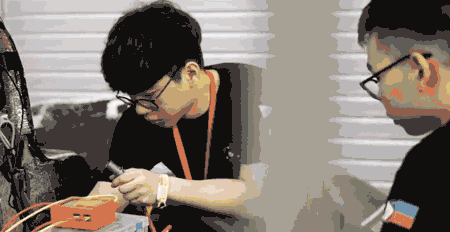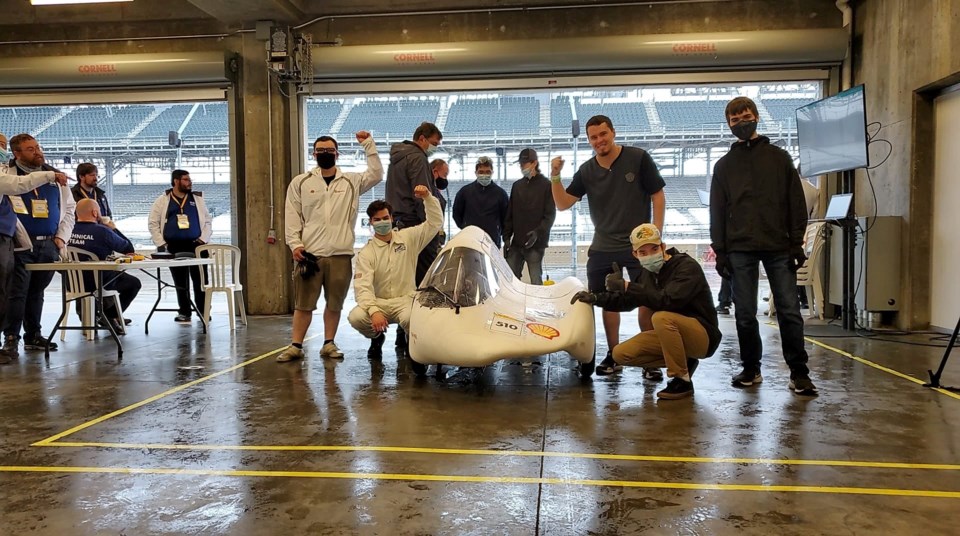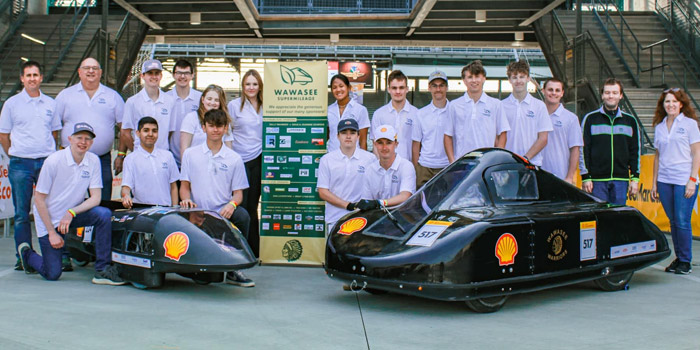Ecology, Saskatchewan Institute of Technology, CanadacarTeam (SASK) participated in the 2022 US Shell Eco-Marathon in Indianapolis from April 10-13 due to the use of recycled materials.3D printingThe car body won the award.

The Shell Eco Marathon is a global academic program focused on energy optimization and one of the world’s leading student engineering competitions. The global academic program brings together science, technology, engineering and math (STEM) students from around the world to design, build and operate some of the world’s most energy-efficient vehicles.
The race takes place at the world-famous Indianapolis Motor Speedway. The Academy has two design themes: Prototypes and Urban Concepts. The prototype is a small, ultra-efficient, lightweight car designed to save fuel. It was the Academy’s first fuel-efficient car to enter the competition.Its dimensions are optimized to reduce aerodynamic and rolling resistance
New innovations are not always smooth sailing, and after a few setbacks, the prototype finally passed technical inspections, but on the final day of the race, a sudden storm kept it out of the way on the track.

According to competition requirements, the designed car must include two doors, four wheels, full lighting, brakes and a horn. This urban concept car is designed for urban driving. In addition to fuel economy, it also has to consider comfort and luggage space.
In addition to the above basic design requirements, their car is made from recycled carbon fiber hockey sticks, 3D printed, and powered by a 35cc ice drill engine and a custom fuel system. A fuel rate rating of 372 miles per gallon puts it fourth in its class and just shy of third.
Since 2017, Sask Polytech has been participating in the Shell Eco-Marathon, one of the world’s leading student engineering competitions. Since 2018, all of their entries have used recycled carbon fiber for their frames.
“I’m very proud of our student team and their achievements,” said Tim Muench, design and manufacturing engineering technology program leader. “Through the competition, students learn new technical skills, teamwork, and how to manage under pressure. On the track, students can see how other teams tackle different design and manufacturing challenges. Congratulations to the teams for their hard work on and off the track. We’re so proud of you.”

The Supermileage team from Wawasee High School again took first place in the competition. This is the fourth consecutive year the team has won the top honor.
About the match history
The race dates back to 1939, when Shell’s research director made a bet with his colleagues to see who could get the best fuel economy from a modified road car. Bob achieved 49 MPG, setting a record and leaving the idea for posterity.

The Shell Eco Marathon officially launched in 1985 when 25 teams gathered in France to pit their wooden vehicles against each other, a format that laid the foundation for the race we know and love today.
Today’s teams can choose from a range of energy options, from battery electric to hydrogen fuel cells, using different materials, from advanced carbon fiber to bamboo. To date, more than 100,000 students from hundreds of universities in over 60 countries have participated.
(responsible editor: admin)


0 Comments for “The 3D printed ecological car designed by SASK Polytechnic won the Technology Innovation Award”